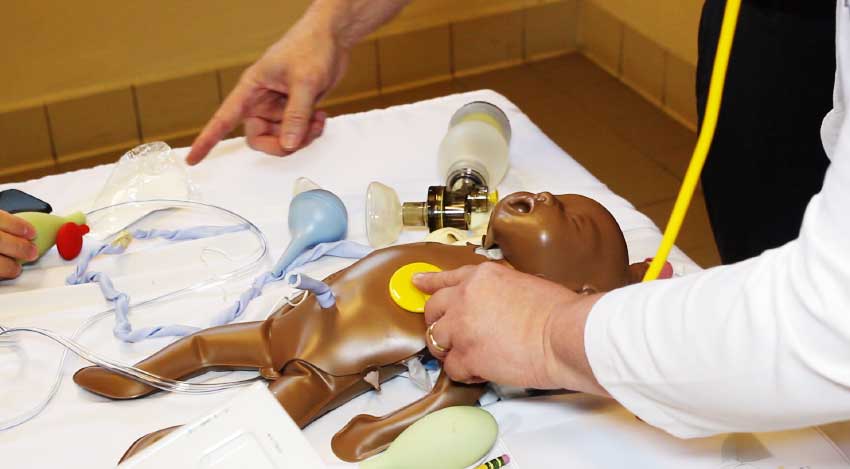PRESS RELEASE – THE World Pediatric Project is spearheading a programme to improve newborn outcomes in the Caribbean. Last week, the project conducted neonatal resuscitation training at Victoria Hospital to impart life-saving techniques to the participants.
The birth of a baby is one of life’s most miraculous moments with arguably few experiences comparing to this event. The first 12 to 24 hours of a baby’s life are vital to ensure proper transitioning from the womb to the outside environment.

Manager of the Neonatal Unit at Victoria Hospital, Mathaline Charlemagne, explained the importance of this transition period.
“Within that time, some babies do transition well. However, some babies would require a little assistance and if it isn’t managed effectively what could happen is that the baby could have lifelong damage,” she said.
Last week, health and medical practitioners were engaged in neonatal resuscitation programme, which is an evidence-based approach to the care of newborns for professionals who care for newborns at the time of delivery.
Neonatologist with the World Pediatric Project, Dr. Robert Fleming, said this training in newborn resuscitation is part of a broader programme of newborn care designed to get babies off to a good start.
“So we’ve been using mannequins to demonstrate certain skills in resuscitating, including getting babies who are not breathing well to breathe and those who need CPR to get CPR. We teach chest compressions as well and that’s one aspect of the newborn care that we’re focusing on. We’ve spent a lot of time over the past few days talking about the respiratory problems in the newborn which tend to be the most severe and life-threatening in the situation,” Dr. Fleming explained.
Previous World Pediatric programmes have largely focused on surgical teams and specialist pediatric areas such as cardiology, but Dr. Fleming said this programme was slightly different.
“Our particular programme with the World Pediatric Project is much more about capacity building. So our focus is on the newborn and ensuring that the adequate equipment, adequate supplies, adequate systems and pharmaceuticals are available to babies in the Caribbean region so they can get the best care available,” he said.
Participants in the newborn resuscitation programme included midwives, neonatal nurses, EMTs, fire personnel and community nurses.
“The community nurses have joined us because they could get deliveries in that setting and also they would have to be able to transport those babies to our facility at Victoria Hospital to further the care that would be provided,” said Dr. Fleming.
The Neonatal Resuscitation Programme has been successfully taught and implemented in other countries. Though the principles of the programme are already implemented in St. Lucia, the training served as a refresher for some while expanding the knowledge base of other participants.





![Simón Bolívar - Liberator of the Americas [Photo credit: Venezuelan Embassy]](https://thevoiceslu.com/wp-content/uploads/2025/12/Simon-Bolivar-feat-2-380x250.jpg)



